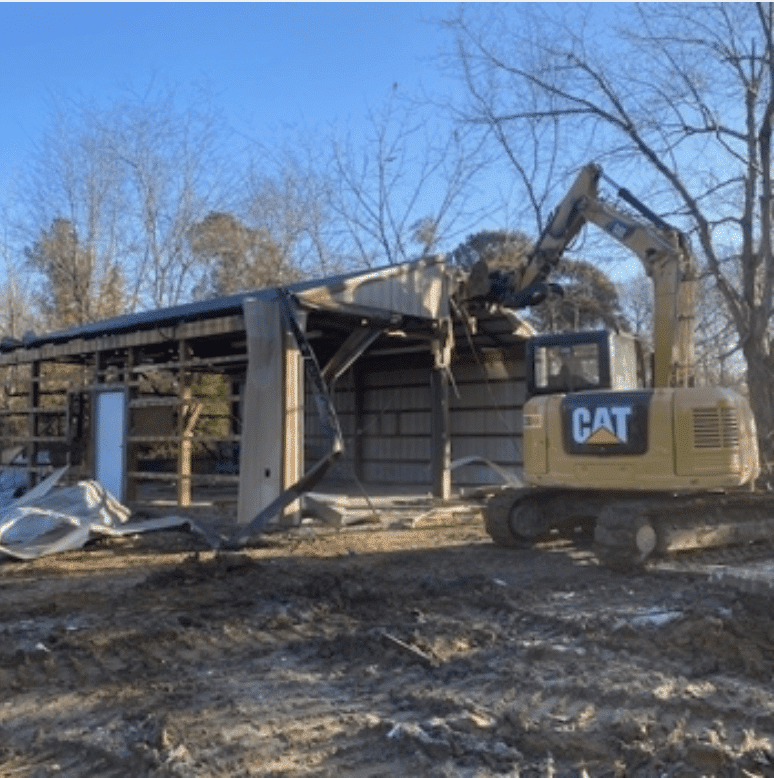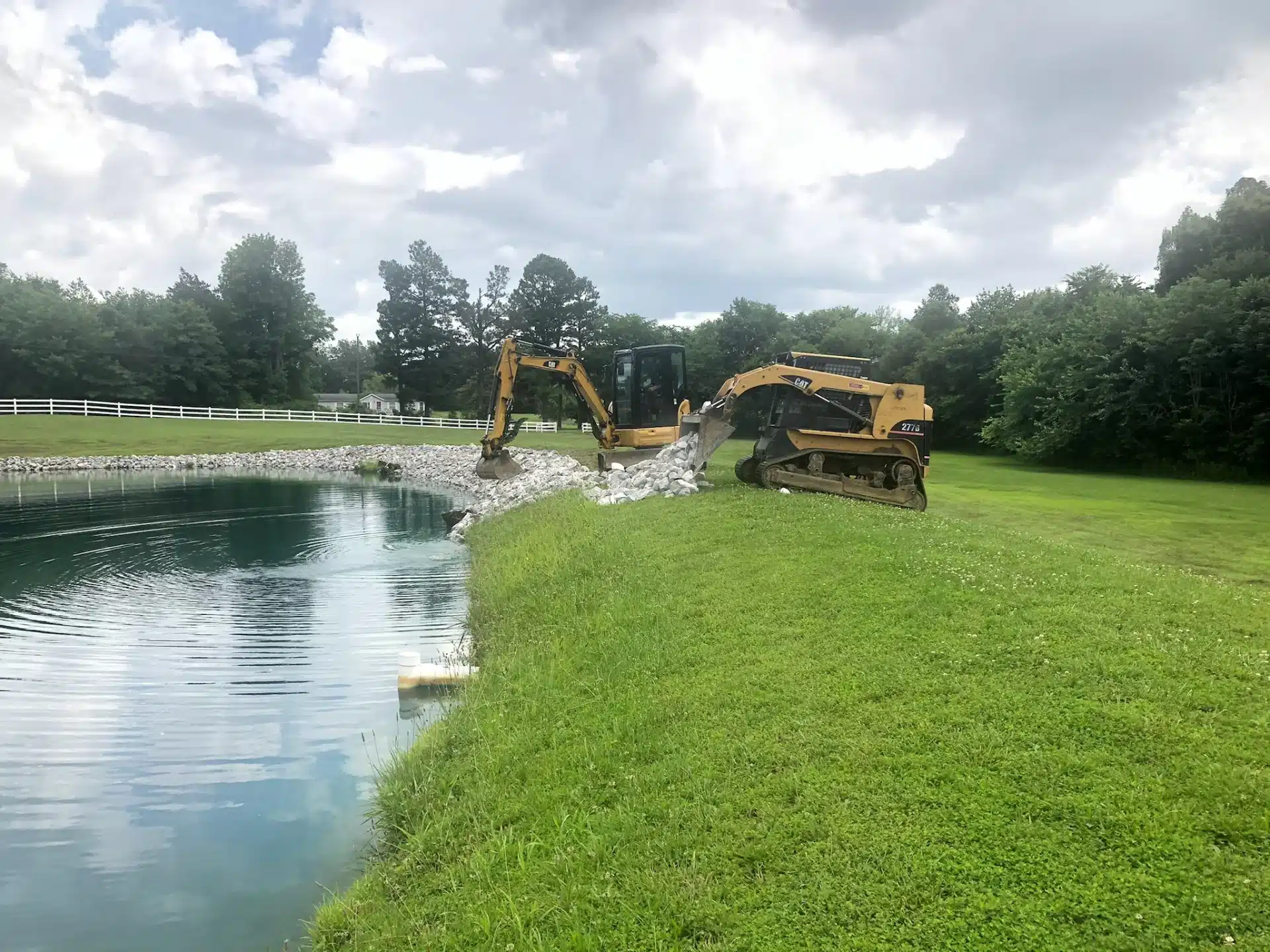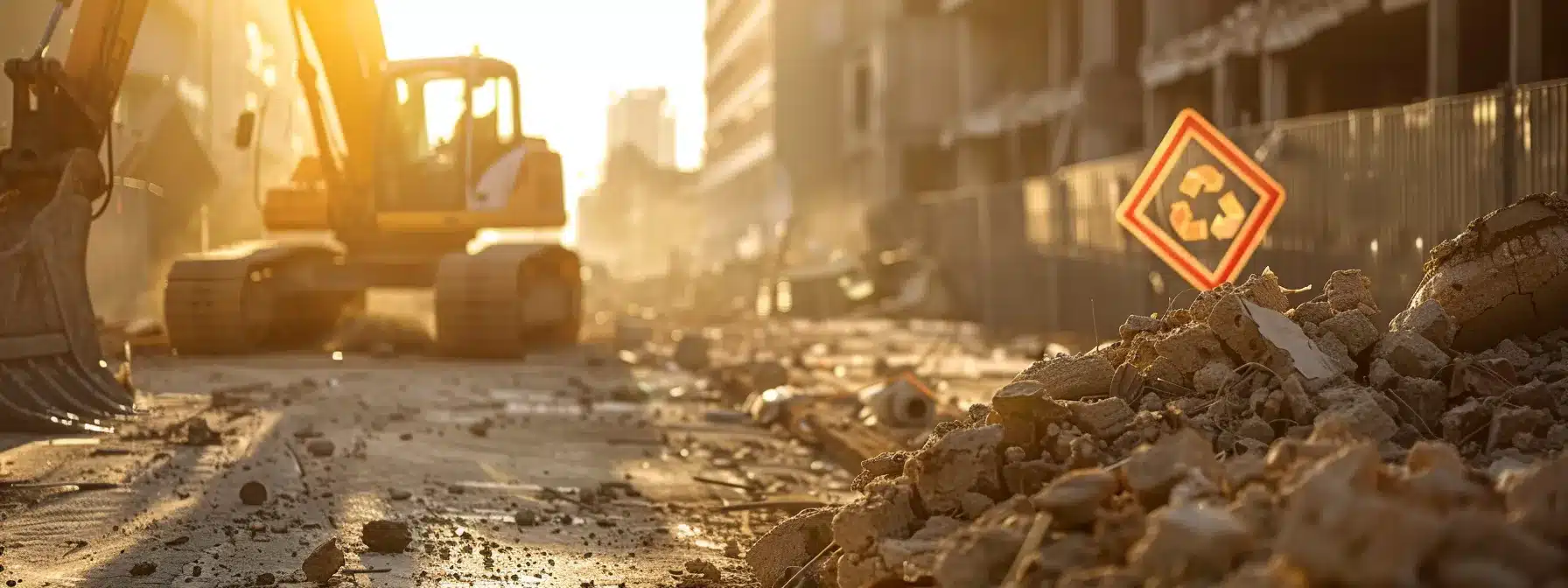Key Takeaway:
- Proper site preparation is crucial before starting excavation as it ensures safety, efficiency, and cost-effectiveness of the project. This includes surveying the area, assessing soil conditions, and identifying any potential hazards or obstacles.
- Various factors such as soil type, weather conditions, and existing infrastructure play a significant role in determining the site preparation requirements. Understanding these factors and their impact on excavation can help in planning and executing the project effectively.
- Choosing a competent construction company with experience in excavation projects is essential. Look for companies with a proven track record, appropriate licenses, and a thorough understanding of local regulations to ensure a smooth and successful excavation process.
Important Considerations for Excavation.
Excavation: An Insight into Effective Preparation
Delve into the world of excavation by understanding the importance of proper preparation. Learn about the essential steps and considerations in this informative and formal exploration into the world of excavation. Gain valuable insights and expert guidance for a successful excavation project.
Prepare for Excavation: A Profound Approach
Embark on your excavation journey equipped with the knowledge and expertise needed for a smooth operation. Explore the key aspects of preparation, from conducting site surveys and obtaining necessary permits to developing a comprehensive excavation plan. Understand the significance of precision and attention to detail in order to ensure the safety and success of your project.
Unveiling Unexplored Territory
Discover unique details that elevate your understanding of excavation preparation. Uncover the essential guidelines for conducting ground assessments and managing potential risks. Explore the world of utility mapping and the importance of identifying and avoiding underground services. Acquire knowledge in selecting the appropriate excavation equipment and establishing effective communication protocols.
Take Action Now to Avoid Regret
Don’t miss out on the opportunity to excel in your excavation endeavors. Implement the strategies and insights gained from thorough preparation to mitigate potential risks and challenges. Embrace the call-to-action, ensuring every step is taken with precision and dedication to achieve the desired results. By investing time and effort in preparation, you can partake in an excavation journey that guarantees both safety and success.
Understanding the importance of site preparation
Understanding the Significance of Proper Site Preparation
Site preparation plays a crucial role in ensuring a successful excavation process. It involves thorough planning and preparation to mitigate potential risks and maximize efficiency. Adequate site preparation involves assessing factors like soil stability, the presence of underground utilities, and proper safety measures. By understanding the importance of site preparation, one can avoid costly delays and ensure a smooth excavation process.
During the site preparation phase, it is essential to evaluate the soil conditions and determine if any reinforcement or stabilization is required. This step helps prevent structural failures and ensures the safety of the workers. Additionally, identifying underground utilities such as gas lines or electrical cables is crucial to avoid accidents and damage during excavation. Furthermore, establishing clear demarcations and boundaries on the site ensures that the excavation remains within the designated area.
Proper site preparation also involves obtaining the necessary permits and complying with local regulations. This ensures that the excavation is conducted legally and in accordance with safety standards. Hiring experienced professionals who understand the intricacies of site preparation can greatly contribute to the success of the project.
Factors influencing site preparation
Factors contributing to the preparation of a site
The factors influencing site preparation can vary significantly depending on the specific project and its location. Here are some key points to consider:
- Geological Composition: The geological makeup of the site plays a crucial role in determining its feasibility for excavation. Factors such as soil stability, rock formations, and the presence of underground water sources can significantly impact the preparation process.
- Environmental Considerations: Environmental factors like weather patterns, proximity to water bodies, and potential habitat disruption must be taken into account during site preparation. Adhering to environmental regulations and constructing proper erosion control measures ensures minimal impact on the surrounding ecosystem.
- Site Access and Logistics: Ease of access to the site and its proximity to transportation routes greatly influence site preparation. Factors such as road infrastructure, distance to suppliers, and availability of construction equipment must be considered to ensure efficient and timely execution.
- Project Specific Requirements: Each construction project comes with its unique requirements that influence site preparation. These could include factors like the size and nature of the planned structure, utility connections, and any special considerations for hazardous materials or delicate surroundings.
It is important to conduct a comprehensive site assessment to identify any unique details that may impact the preparation process. This can help anticipate challenges and devise effective strategies to mitigate risks and ensure a smooth excavation process.
Pro Tip: Engaging with a professional geotechnical engineer during the site preparation phase can provide invaluable insights and help optimize the preparation process.
Finding a competent construction company
Finding a reliable construction firm
To ensure a successful excavation, it is crucial to find a construction company that possesses the necessary expertise and competence. Here are four key points to consider when selecting a construction company:
- Evaluate the company’s experience and track record in excavation projects.
- Consider the company’s qualifications, certifications, and licenses.
- Assess the company’s reputation by reviewing customer reviews and testimonials.
- Examine the company’s safety measures and adherence to industry regulations.
Moreover, it is important to note that the construction company you choose should align with your project’s specific requirements and budgetary constraints. By carefully considering these factors, you can find a competent construction company that will ensure a successful excavation.
According to the reference article “How to prepare for excavation,” a competent construction company is crucial for a smooth excavation process.
Foundation drilling
Foundation drilling is the process of creating holes in the ground for the purpose of constructing a solid foundation for a building or structure. This essential step involves several important points:
- Equipment: Foundation drilling requires specialized machinery such as drill rigs and augers which are designed to dig deep into the ground.
- Techniques: Various drilling techniques are employed, including rotary drilling, auger drilling, and hammer drilling, depending on the specific requirements of the project.
- Safety: Safety measures must be strictly followed to protect the workers and ensure that the drilling operation proceeds without any accidents or mishaps.
- Considerations: Factors such as soil conditions, groundwater levels, and proximity to existing structures need to be carefully considered during foundation drilling to ensure stability and avoid issues in the future.
Additionally, it is important to note that proper foundation drilling minimizes the risk of foundation settlement, provides a strong base for the structure, and allows for the proper integration of utilities and services.
For successful foundation drilling, it is recommended to ensure regular maintenance of drilling equipment, adhere to industry standards and regulations, conduct thorough site evaluations, and engage experienced professionals. These suggestions work by guaranteeing the reliability and durability of the foundation, reducing the likelihood of future problems, and ensuring the safety of the construction project.
Steps involved in site preparation for excavation
The process of preparing a site for excavation involves several important steps. Firstly, it is crucial to ensure that the area is properly surveyed and marked for excavation. This includes conducting a thorough analysis of the site’s topography and soil composition. Once the survey is complete, the next step is to obtain any necessary permits or licenses required for excavation. This may involve submitting detailed plans and obtaining approval from relevant authorities.
Next, the site needs to be cleared of any existing structures or debris that may impede the excavation process. This includes removing vegetation, demolishing any buildings or structures, and clearing away any other obstructions. It is important to properly dispose of any waste materials in accordance with local regulations.
After the site has been cleared, the next step is to establish proper access routes and pathways for the excavation equipment and personnel. This may involve constructing temporary roads or ramps, installing fences or barriers for safety purposes, and setting up appropriate signage to guide workers and visitors.
Once the site is accessible, it is important to prepare the ground for excavation. This may involve grading the site to ensure a level surface, compacting the soil to provide stability, and taking any necessary measures to prevent erosion or soil displacement during the excavation process.
Finally, it is essential to implement appropriate safety measures to protect workers and ensure compliance with relevant regulations. This may include establishing safety protocols, providing necessary protective equipment, and conducting regular safety inspections and training sessions.
Conclusion
Excavation is a crucial process that requires careful preparation to ensure its success. By adhering to the necessary guidelines and safety measures, the excavation project can proceed smoothly and effectively.
Adequate planning, site assessment, and communication are key factors that contribute to the overall success of the excavation process. It is imperative to consider the specific requirements of the project, obtain necessary permits, and engage in proper equipment selection and operation.
Additionally, maintaining open lines of communication among all stakeholders is vital to address potential challenges and ensure a safe working environment. Excavation should be approached with a systematic and strategic mindset to achieve optimal results.
Five Facts About How to Prepare for Excavation:
- ✅ Site preparation is the first step before any construction or excavation takes place.(Source: Team Research)
- ✅ Soil testing is necessary to gather data on soil density and its ability to bear the load of a structure.(Source: Team Research)
- ✅ Clearing the site by removing vegetation and previous structure’s remains is essential for excavation.(Source: Team Research)
- ✅ Site surveying provides the necessary measurements for proper structure laying and helps determine the exact location for drilling.(Source: Team Research)
- ✅ Hiring credible excavators is crucial for successful excavation once the previous steps are completed.(Source: Team Research)
FAQs about How To Prepare For Excavation
How do I prepare the site for excavation?
To prepare the site for excavation, follow these steps:
- Test the soil to gather data on soil density, load-bearing capacity, and moisture absorption.
- Clear the site by removing vegetation, trees, shrubs, and any remnants of previous structures.
- Survey the site to obtain area measurements required for proper construction planning.
- Hire credible excavators to perform excavation after successfully completing the previous steps.
What factors should I consider during site preparation for excavation?
Several factors to consider during site preparation include:
- Varying soil types
- High soil moisture contents
- Geo-grids
- Soil stabilization
- Undercutting displacements
Why is it important to have good foundations before excavation?
Having good foundations is essential because they provide support for any permanent structure. The proper installation of foundations ensures stability and durability.
What should be done before laying the foundation for a structure?
Prior to laying the foundation, foundation piers or deck piers may be needed. Therefore, foundation drilling should be performed on the site.
What is the purpose of site surveying during site preparation?
Site surveying is essential to obtain accurate area measurements necessary for the proper placement of the structure. It helps create a physical representation of the construction plan at the ground level.
Why is soil testing important for site preparation?
Soil testing is crucial to gather data on soil density, load-bearing capacity, and moisture absorption. It allows for soil improvement measures to be taken if the soil’s ability to support construction is inadequate.
Supreme Enterprises LLC
Looking for reliable excavation solutions? Look no further! With over 14 years of experience, our skilled professionals at Supreme Enterprises specialize in safeguarding properties from erosion and sedimentation. Our cost-effective solutions cater to all property types. Take the first step by calling us today at (270) 205-4108 and let us handle your excavation needs with utmost precision and expertise!”













